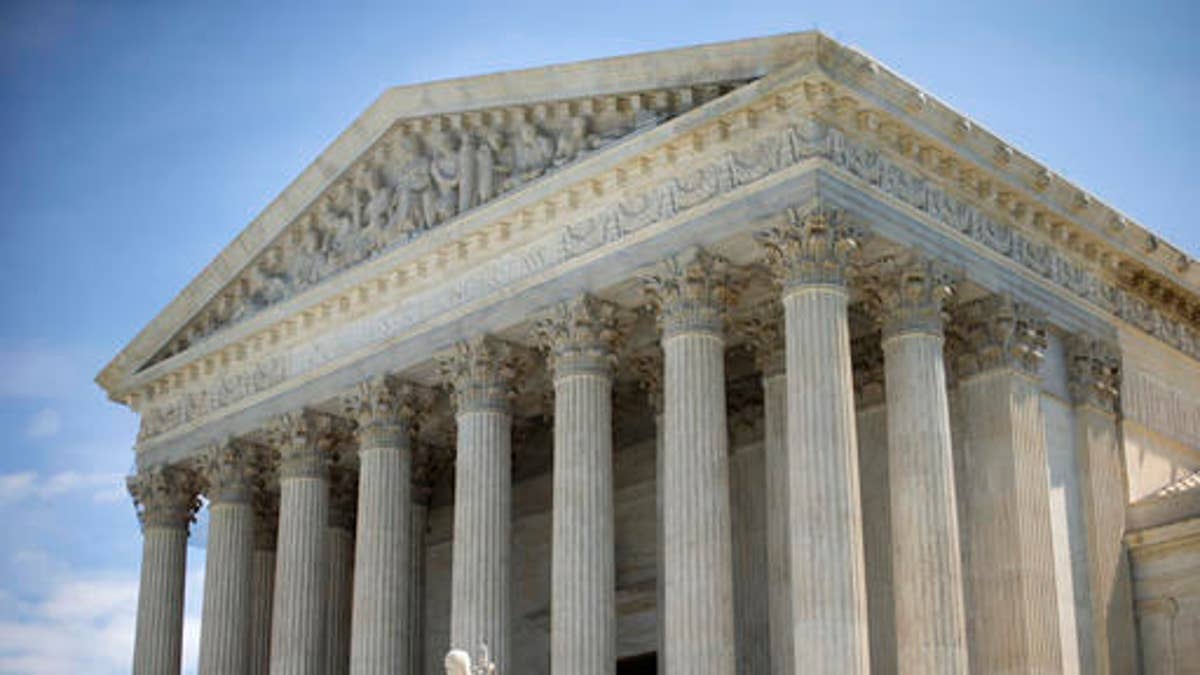
FILE - In this June 30, 2014file , the Supreme Court building is seen in Washington. Conservatives who care about the court say they have no such worry this time around. They feel confident that whomever President Donald Trump nominates for the Supreme Court, they wonât be looking back with regret in the years to come. (AP Photo/Pablo Martinez Monsivais, File) (AP)
Government should not be able to unjustly discriminate against any religious organization or its members, period. The state of Missouri did just that. Thankfully, the Supreme Court on Monday emphatically affirmed religious freedom and rejected anti-religious discrimination in its 7-2 decision in Trinity Lutheran Church of Columbia v. Comer.
The court ruled that it is unconstitutional for the government to exclude religious organizations from government programs that provide secular benefits. A Missouri government program partially reimburses groups for money spent promoting public safety by installing rubber surfaces on their playgrounds. Unreasonably, though, the state slapped a “No religious groups allowed” sign on the door by banning the preschool that Trinity Lutheran Church owns from the program. Chief Justice John Roberts, who authored the majority opinion, said that discrimination against religious people and institutions “is odious to our Constitution.”
The Missouri restriction was discriminatory because it had nothing to do with the program’s purpose. Children playing on land that religious groups own aren’t impervious to harm. All kids — whether pious, atheist, or somewhere in between—are very obviously susceptible to injury from hard surfaces.
Nor should the state have a greater interest in protecting young ones playing on nonreligious premises. Religious children — be they Christian, Jewish, Muslim, or Hindu — are no less worthy of the state’s concern than those who don’t affiliate with a particular faith.
So why did Missouri treat people of faith and their organizations as if they were inferior? Because of anti-religious bigotry embedded in the Missouri Constitution. Because many years ago, dislike and mistrust of Catholics led the people of Missouri to stamp religious hostility into their state’s founding charter.
The court’s ruling in this matter helps restore religion to equal footing with other constitutionally protected classifications. Just as the government can’t withhold a secular benefit from all Latinos or all women, the Supreme Court confirmed that the state can’t fence out the faithful.
But now, the Supreme Court has decided that anti-religious Missouri law — and others like it throughout the country — can no longer be used to keep people of faith from accessing secular benefits. The Court’s ruling in favor of Trinity Lutheran forbids government from being able to so aggressively wield these laws to treat religious people as second-class citizens.
The court’s ruling in this matter helps restore religion to equal footing with other constitutionally protected classifications. Just as the government can’t withhold a secular benefit from all Latinos or all women, the Supreme Court confirmed that the state can’t fence out the faithful.
The court stopped, dead in its tracks, a tactic that governments use to marginalize people of faith and the organizations they run. When bureaucrats announce that the religious are ineligible for secular benefits available to others, it sends the message that religion and its adherents are lesser. As those exclusions have become widespread, people of faith find themselves always on the outside looking in — having been ostracized by the collective force of countless closed doors. But the court’s decision sets the states on a different course: one that treats people of faith as equal to their nonreligious neighbors.
The Supreme Court’s decision protects religious freedom, children’s safety, and promotes basic civility. Most fundamental of all, the court affirmed the foundational American ideal that we don’t discriminate against groups or individuals seeking public benefits because of their religious beliefs. Even in our contentious political climate, that’s something most Americans should still be able to rally around.
Michael Farris is president, CEO, and general counsel of Alliance Defending Freedom, which represents Trinity Lutheran Church of Columbia and its preschool.
